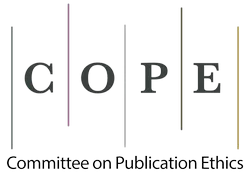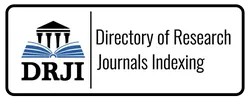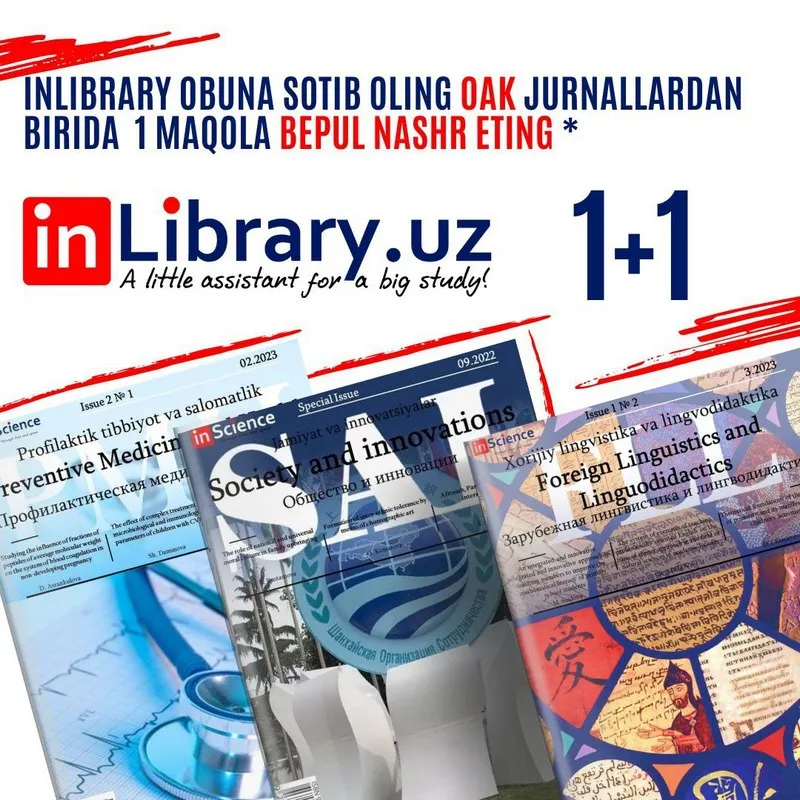DOI
https://doi.org/10.47689/2181-1415-vol2-iss10/S-pp63-72Ключевые слова
искусственный интеллект , машинный интеллект , право роботов , цифровое право , правосубъектность робота , рациональность , логические законыАннотация
В данной статье автором рассмотрены вопросы внедрения искусственного интеллекта и роботов в жизни. Как отмечается, правовая оценка сущности искусственного интеллекта, и регламентация порядка его использования, на сегодняшний день, становится одной из важнейших задач права. Автором дан анализ возможных подходов к раскрытию понятия «искусственный интеллект» как правовой категории и соотношения его с понятиями «робот» и «машина». Изучены возможность признания у робота, обладающего искусственным интеллектом, свойств субъекта права. Также, рассмотрены основные противоречия в определении понятия искусственного интеллекта, подходы к его идентификации, в частности, проблемы узкого (специального) и широкого (универсального) понимания сущности и функций искусственного интеллекта. В ходе подготовки были использованы такие методы научного познания, как анализ, синтез, обобщение, интерпретация и пр.
Скачивания
Библиографические ссылки
Fyodor Dostoyevsky, Crime and Punishment, translated by Constance Garnett (Urbana, IL: Project Gutenberg, 2006), Chapter VII.
Isaac Asimov, “Runaround”, in I, Robot (London: HarperVoyager, 2013), 31. Runaround was originally published in Astounding Science Fiction (New York: Street & Smith, March 1942). See Isaac Asimov, “The Evitable Conflict”, Astounding Science Fiction (New York: Street & Smith, 1950).
Isaac Asimov, “Interview with Isaac Asimov”, interview on Horizon, BBC, 1965, http://www.bbc.co.uk/sn/tvradio /programmes/horizon/broadband/archive/asimov/.
For example, Christopher d. Green, “Charles Babbage, the Analytical Engine, and the Possibility of a 19th-Century Cognitive Science”, in The Transformation of Psychology, edited by Christopher d. Green, Thomas Teo, and Marlene Shore (Washington, DC: American Psychological Association Press, 2001), 133–152. See also Ada Lovelace, “Notes by the Translator”, Reprinted in R.A. Hyman, ed. Science and Reform: Selected Works of Charles Babbage (Cambridge: Cambridge University Press, 1989), 267–311.
George Zarkadakis, In Our Image: Will Artificial Intelligence Save or Destroy Us? (London: Rider, 2015).
T. Abusch, “Blood in Israel and Mesopotamia”, in Emanuel: Studies in the Hebrew Bible, the Septuagint, and the Dead Sea Scrolls in Honor of Emanuel Tov, edited by Shalom M. Paul, Robert A. Kraft, Eva Ben-david, Lawrence H. Schiffman, and weston w. Fields (Leiden, The Netherlands: Brill, 2003), 675–684, especially at 682.
Genesis 2:7, King James Bible.
The original Czech is “Rossumovi Univerzální Roboti”. Roboti translates roughly to “slaves”.
“Homepage”, Neuralink website, https://www.neuralink.com/, accessed 1 June 2018; Chantal da Silva, “Elon Musk Startup ‘to Spend £100m’ Linking Human Brains to Computers”, The Independent, 29 August 2017, http://www.independent.co.uk/ news/world/americas/elon-musk-neuralink-brain-computer-startup7916891.html, accessed 1 June 2018. For commentary on Neuralink, see Tim Urban’s provocative blog post “Neuralink and the Brain’s Magical Future”, Wait But Why, 20 April 2017, https://waitbutwhy.com/2017/ 04/neuralink.html, accessed 1 June 2018.
Tim Cross, “The Novelist who Inspired Elon Musk”, 1843 Magazine, 31 March 2017, https://www.1843magazine.com/culture/the-daily/the-novelist-who-inspired-elon-musk,accessed 1 June 2018.
For the distinction, see David Weinbaum and Viktoras Veitas, “open Ended Intelligence: The Individuation of Intelligent Agents”, Journal of Experimental & Theoretical Artificial Intelligence, Vol. 29, No. 2 (2017), 371–396.
Roger Penrose, The Emperor’s New Mind: Concerning Computers, Minds, and the Laws of Physics (oxford: oxford University Press, 1989). Wendell Wallach and Colin Allen, Moral Machines: Teaching Robots Right from Wrong (oxford: oxford University Press, 2009), 68. Margaret Boden, AI: Its nature and Future (oxford: oxford University Press, 2016), 119 et seq she acknowledges the potential for “real” artificial intelligence, but maintains that “…no one knows for sure, whether [technology described as Artificial General Intelligence] could really be intelligent”.
Jerry Kaplan, Artificial Intelligence: What Everyone Needs to Know (New York: oxford University Press, 2016), 1.
Peter Stone et al., “defining AI”, in “Artificial Intelligence and Life in 2030”. One Hundred Year Study on Artificial Intelligence: Report of the 2015–2016 Study Panel (Stanford, CA: Stanford University, September 2016), http://ai100.stanford.edu/2016-report, accessed 1 June 2018.
H.L.A. Hart, The Concept of Law (2nd end. oxford: Clarendon, 1997).
Lon L. Fuller, The Morality of Law (New Haven, CT: Yale University Press, 1969).
Franz Kafka, The Trial, translated by Idris Parry (London: Penguin Modern Classics, 2000).
Stuart Russell and Peter Norvig, Artificial Intelligence: International Version: A Modern Approach (Englewood Cliffs, NJ: Prentice Hall, 2010), para. 1.1 (hereafter “Russell and Norvig, Artificial Intelligence”). John R. Searle, “Minds, Brains, and Programs”, Behavioral and Brain Sciences, Vol. 3, No. 3 (1980), 417–457. The Chinese Room Argument, Stanford Encyclopedia of Philosophy, First published 19 March 2004; substantive revision 9 April 2014, https://plato.stanford.edu/entries/chinese-room/, accessed 1 June 2018.
Alan M. Turing, “Computing Machinery and Intelligence”, Mind: A Quarterly Review of Psychology and Philosophy, Vol. 59, No. 236 (october 1950), 433–460, 460.
The Loebner Prize in Artificial Intelligence, http:// www.loebner.net/Prizef/loebner-prize.html, accessed 1 June 2018. José Hernández-orallo, “Beyond the Turing Test”, Journal of Logic, Language and Information, Vol. 9, No. 4 (2000), 447–466. “Turing Test Transcripts Reveal How Chatbot ‘Eugene’ duped the Judges”, Coventry University, 30 June 2015, http://www.coventry.ac.uk/primary-news/turing-test-transcripts-reveal-how-chatbot-eugene-duped-the-judges/, accessed 1 June 2018. Yuval Harari, Homo Deus (London: Harvill Secker, 2016), 120.
Industrial Strategy: Building a Britain Fit for the Future (November 2017), 37, https://www.gov.uk/ government/ uploads/system/uploads/attachment_data/file/ 664563/industrial-strategy-white-paper-web-ready-version.pdf, accessed 1 June 2018.
“What Is Artificial Intelligence?”, website of John McCarthy, last modified 12 November 2007, http://www-formal.stanford.edu/jmc/whatisai/node1.html, accessed 1 June 2018.
Ray Kurzweil, The Age of Intelligent Machines (Cambridge, MA: MIT Press, 1992), Chapter 1.
NV Rev Stat § 482A.020 (2011), https://law.justia.com/codes/nevada/2011/ chapter-482a/statute-482a.020/, accessed 1 June 2018.
For the new law, see NRS 482A.030. “Autonomous vehicle” now means a motor vehicle that is equipped with autonomous technology (Added to NRS by 2011, 2876; A 2013, 2010). NRS 482A.025 Chapter 482A—Autonomous Vehicles, https://www.leg.state.nv.us/NRS/NRS-482A.html, accessed 1 June 2018
Ryan Calo, “Nevada Bill would Pave the Road to Autonomous Cars”, Centre for Internet and Society Blog, 27 April 2011, http://cyberlaw.stanford.edu/blog/ 2011/04/nevada-bill-would-pave-road-autonomous-cars, accessed 1 June 2018
Will Knight, “Alpha Zero’s “Alien” Chess Shows the Power, and the Peculiarity, of AI”, MIT Technology Review, https://www.technologyreview.com/s/609736/alpha-zerosalien-chess-shows-the-power-and-the-peculiarity-of-ai/, accessed 1 June 2018. See for the academic paper: David Silver, Thomas Hubert, Julian Schrittwieser, Ioannis Antonoglou, Matthew Lai, Arthur Guez, Marc Lanctot, Laurent Sifre, dharshan Kumaran, Thore Graepel, Timothy Lillicrap, Karen Simonyan, and demis Hassabis, “Mastering Chess and Shogi by Self-Play with a General Reinforcement Learning Algorithm”, Cornell University Library Research Paper, 5 December 2017, https://arxiv.org/abs/1712.01815, accessed 1 June 2018. See also Cade Metz, what the AI Behind AlphaGo Can Teach Us About Being Human”, Wired, 19 May 2016, https://www.wired.com/2016/05/google-alpha-go-ai/, accessed 1 June 2018.
Nils J. Nilsson, The Quest for Artificial Intelligence: A History of Ideas and Achievements (Cambridge, UK: Cambridge University Press, 2010), Preface. Similarly, Shane Legg (one of the co-founders of the leading AI company deepMind), writing with his doctoral supervisor Professor Marcus Hutter, also supports a rationalist definition of intelligence: “Intelligence measures an agent’s ability to achieve goals in a wide range of environments”. Shane Legg, “Machine Super Intelligence” (doctoral dissertation submitted to the Faculty of Informatics of the University of Lugano in partial fulfillment of the requirements for the degree of doctor of Philosophy, June 2008).
Stuart Russell and Eric wefald, Do the Right Thing: Studies in Limited Rationality (Cambridge, MA: MIT Press, 1991).
Aharon Barak, Purposive Interpretation in Law, translated by Sari Bashi (Princeton, NJ: Princeton University Press, 2007)
Ronald dworkin, “The Model of Rules”, The University of Chicago Law Review, Vol. 35 (1967), 14, 14–46, 25.
Margaret Boden, AI: Its Nature and Future (oxford: oxford University Press, 2016), 6–7,
Curtis E.A. Karnow, “Liability for distributed Artificial Intelligences”, Berkeley Technology Law Journal, Vol. 147 (1996), 11, http://scholarship.law.berkeley.edu/ btlj/vol11/iss1/3, accessed 1 June 2018.
Загрузки
268 181Опубликован
Как цитировать
Выпуск
Раздел
Лицензия
Copyright (c) 2021 Сардор Бозаров

Это произведение доступно по лицензии Creative Commons «Attribution» («Атрибуция») 4.0 Всемирная.





















